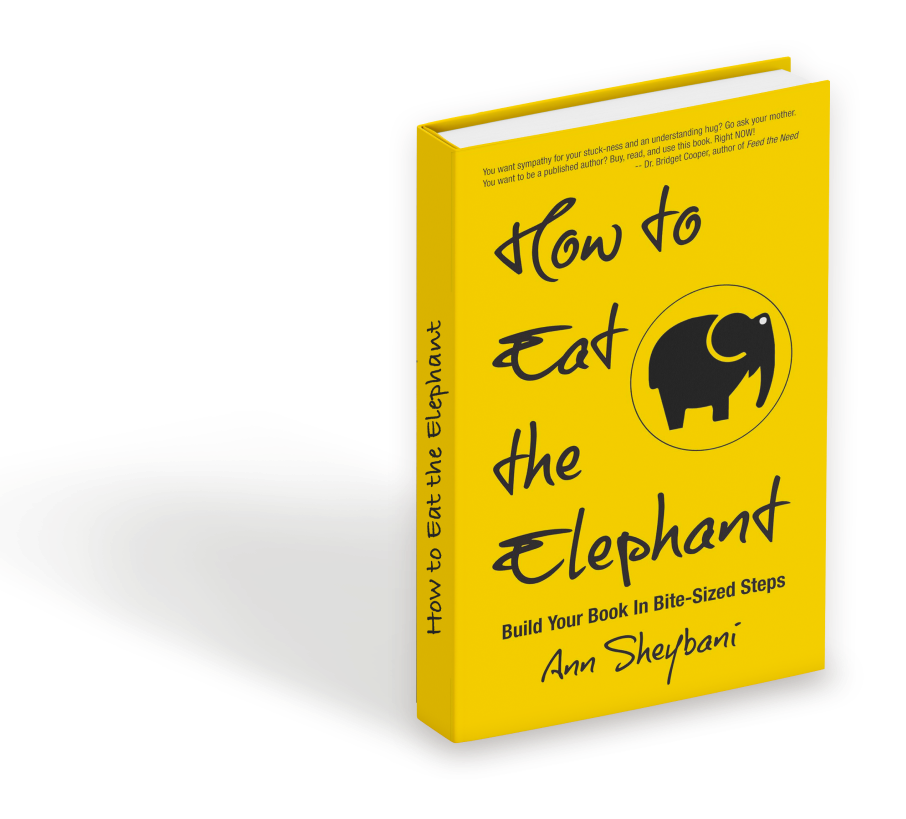“You know,” my Iranian boyfriend said one evening as we lay squished together on his twin bed. “I don’t think I’m the kind of man who could ever marry an American. I just wasn’t raised that way. I always believed that one day I would return home and marry one of my cousins from the village. A girl guaranteed a virgin. As much as I love you, that’s just not what you are.”

What was it that I read there? Jealousy? None of the other men I’d ever been with displayed romantic feelings of proprietership. Rejection? Hadn’t he invited me to move in with him? Fear? Tut, tut. I could make him forget those silly worries. I’d win him over. Prove his reluctance unfounded. I’d change everything I could about myself. I’d toss out my swimsuits and shorts in favor of muumuus. I’d knock off the flirting and joking and treat all men like Jehovah’s Witnesses.

I wanted this man for keeps. I’d burned one too many bridges to be there that day. There was no such thing as retreat, not on this battlefield.
And besides, everybody knows that love can conquer all.

Of course we got married. We moved to his country. Had a couple of kids. And before too long had passed, I realized I was in way over my head. He was a conservative Iranian. A practicing Muslim. I was a liberal American. A Born Again Nothing.
The two opposing mindsets clashed like a paisley print with florals.

The marriage went up in smoke. Because I was who I was, regardless of the show. He was who he was, the man he’d declared himself to be.
Years after I divorced, I joined the dating site Match.com. Sifting through member profiles, I discovered a bevy of interesting men. Some claimed to like baseball, others Harley Davidsons. Some fancied themselves intellectuals, others thrived on yoga.
I clicked on a candidate with an interesting description. An independent businessman who flew planes, studied in Hawaii, an expert on the stock market. Before too long, we began a relationship.”You know,” he said over dinner one evening, “My therapist is nothing short of a miracle worker. Everyone claims narcissim can’t be cured. But she’s convinced we’ve got mine beat.”
Flipping through Webster’s later that night, I studied the definition of his “former” personaity disorder. Narcissism: the inordinate fascination with oneself; excessive self-love: vanity.

Worrisome…..But wait! He was a compelling man, despite his aloofness. He led a fascinating life, even if it was fictitious. He’d been hurt in a divorce. No wonder he was skittish.
Once he realized I was different, he’d relax with me.
I’d play it cool.

I’d pretend I didn’t care if he were seeing nine other women.
I was falsely casual, he was grandiose, think for a minute, what a fabulous team that would make.

Two years later I cut my losses. He was, after all, what he and Webster’s defined him to be.
In between boyfriends, I needed a lift. So, I decided to read my way through a long list of classics. I’d always liked Somerset Maugham, having read The Razor’s Edge, but it was his 1919 short novel, The Moon and Sixpence, that sent alarm bells off in my head.

Buried within the tale of Charles Strickland– a middle aged English stock broker who abandons his wife and children to pursue his desire to become an artist– I discovered a treasure trove of insight into human nature:
“I had not yet learnt how contradictory is human nature; I did not know how much pose there is in the sincere, how much baseness in the noble, nor how much goodness in the reprobate… When people say they do not care what others think of them, for the most part they decieve themselves. Generally they mean only that they will do as they choose, in the confidence that no one will know their vagaries; and at the utmost only that they are willing to act contrary to the opinion of the majority because they are supported by the approval of their neighbors.”So willing to alter myself to win a man over, I was thrilled by Strickland, a character who cares nothing for others. Not their feelings, nor their opinions, not their companionship. Unusual for a sociopath, he takes ownership of his nature. When his lover commits suicide after their affair goes belly up, Strickland disavows all sense of responsibility: “I told her that when I’d had enough of her she’d have to go, and she’d have to go, and she said she’d risk that.”
But more precisely, it was Maughm’s exploration of Strickland’s women, their refusal to acknowledge his ugly self-description, that really hit home for me as my truth.
“When a woman loves you she’s not satisfied until she possesses your soul…I saw Blanche little by little trying all her tricks with infinite patience…she cared nothing for me, she only wanted me to be hers…But the blindess of love led her to believe what she wanted to be true, and her love was so great that it seemed impossible to her that it should not in return awake an equal love.”
For someone like me— a bit of a floater, unsure of her own opinions or goals— a confident man was like the shining North Star.

I was sure I’d be all right as long as I followed his course.
My willingness to hang on, to ignore distancing statements, was never about love. It was purely navigational.

But, really what I was seeking had nothing to do with confidence. What I liked to label self-assurance was frank ambivalence. And the more a man wavered, the deeper I bit in. Because to win over the indifferent was to prove my own worth.
When a person proclaims something bad about themselves, believe them. Or don’t be surprised at the end result.


